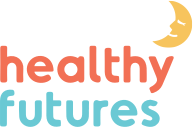Your Baby
At one year, here are a few things your baby may be doing.
- Walk with help. Provide a safe place where this new skill can be practiced.
- Say 1-3 Words – Common words include “bye-bye,” “ma-ma,” “da da,” or his or her name. – Give you baby opportunities to wave bye-bye, name body parts, and play peek-a-boo.
- Start to experiment with a spoon. – Your baby is eager to learn how things work. Provide opportunities to play with safe toys or empty the lower kitchen cabinets to explore pots and pans, plastic bowls and lids.
- Imitate Other People – Provide opportunities to pretend using a telephone or participate in simple household chores.
The Introduction of Milk
Most health care providers encourage parents to wait until around 12 months of age to introduce milk. Starting at 12 months of age, your child needs approximately 12 ounces of whole milk each day. Whole milk is recommended because the fat content is essential for brain development. If you have not already done so, it is also a good time to introduce the use of a cup. Since you and your baby’s health care provider know your baby best, talk with him or her about your baby’s milk intake.
Hearing and Vision
Hearing and vision issues are concerns that need to be addressed right away. At your well-baby visit, alert your health care provider if your baby does not respond to his name, loud sounds, or you notice drifting or crossed eyes. For more information on development, call Early On at 1-800-327-5966.
Your Family
With a busy baby in the home, keeping him/her safe can feel like a full-time job for everyone in the home. Parents and other children play an important role in maintaining a safe environment and providing continuous supervision.
- If you have older children in the household, talk with them about keeping their toys out of the baby’s reach. Many toys that are suitable for older children are not safe for babies and toddlers.
- Protect baby from hot liquids; turn pan handles toward center of stove
- Keep cleaners and medicines out of baby’s reach.
- Post poison control number by your phone:1-800-222-1222
- Use safety gates across stairways until baby has completely mastered the stairs. If you have older children in the household, talk with them about proper use of the gate.
- Educate yourself on first aid techniques and supplies needed in your home
Protect your child from lead exposure. Exposure to even small amounts of lead can cause numerous health and developmental problems. Lead is especially a problem in older homes because lead was often used in household paints until the 1970s. Chipping or peeling paint can attract young children and lead dust can collect in the home. Here are some of the ways you can protect your child from lead.
For more information on lead poisoning talk your Healthy Futures Nurse or visit michigan.gov/lead.
Your Checklist
Schedule your first dental visit and start thinking about oral health. Once first teeth appear, use a small soft toothbrush with a small smear of fluoride toothpaste (the size of a grain of rice) two times a day. Check the mouth regularly for white or brown spots near the gum line. See a dentist if these changes occur. Other healthy oral care habits include filling sippy cups with only water for snack time and between meals. Do not put your baby to bed with bottles of milk, formula, or juice – this causes cavities. Do not share cups, eating utensils, pre-chew food, or put the pacifier in your mouth. Sharing saliva shares germs and causes cavities.
Your baby is due for his one-year immunizations and well-baby checkup. Vaccine-preventable diseases can cause serious harm to children who are not fully immunized. Call your baby’s health care provider or your local health department to make an appointment.
Health Insurance Coverage – If you do not have health insurance for you or your baby, call your local health department or Healthy Futures nurse. Health care coverage is important for all children. New options for coverage are available.
Keep your baby in a rear-facing car seat until you reach the maximum limits of the car seat. Children younger than 2 years old are best protected riding in a rear-facing car seat. Children who reach these limits before 2 years old should transition to a rear-facing convertible seat. Always follow directions from the manufacturer.




